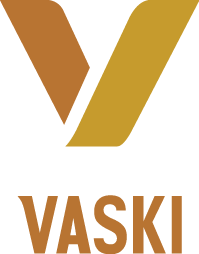Streamlining Industrial Manufacturing with Vaski
2024-05-13
Enhancing Efficiency in Industrial Manufacturing
As industries evolve, the demand for more efficient, reliable, and cost-effective manufacturing processes becomes paramount. In the realm of industrial manufacturing, efficiency is not just about speed; it’s about integrating smart technology that simplifies operations and reduces waste. This is where advanced machinery and automation solutions play a pivotal role, transforming traditional manufacturing landscapes into modern, high-performance powerhouses.
One of the key players in this transformation is the innovative use of specialised machinery designed to streamline operations. These machines are not just tools; they are partners in the manufacturing process that offer flexibility, durability, and precision, ensuring that industries can meet the ever-changing demands of the market.
The Role of Automation in Modern Manufacturing
Automation in manufacturing is no longer a luxury but a necessity. It represents a significant shift from manual interventions to a seamless, automated flow of operations. This shift not only enhances production capacity but also improves the quality of products by minimising human error. The integration of automation technologies in machinery, such as programmable logic controllers and robotics, has enabled manufacturers to maintain consistent quality and increase throughput.
Moreover, automation fosters a safer working environment by taking on dangerous tasks that would otherwise pose risks to human workers. This not only helps in reducing workplace accidents but also in lowering the long-term health risks associated with repetitive and physically demanding tasks.
Customised Solutions for Diverse Industrial Needs
Every industry has unique challenges and requirements, which means that one-size-fits-all solutions are often not feasible. Customised machinery solutions that cater to specific industrial needs can offer significant advantages. These tailored solutions ensure that all aspects of the manufacturing process are optimised for the highest efficiency and output quality.
For instance, in industries where precision is paramount, such as in the production of metal parts or electronic components, custom machinery that can accurately cut, shape, and assemble materials is crucial. These machines must not only perform tasks with high precision but also adapt quickly to changes in material type, shape, and size.
Future-Proofing Manufacturing with Advanced Technologies
The future of manufacturing lies in the ability to anticipate changes and adapt swiftly. Advanced technologies such as AI and machine learning are at the forefront of this, providing machines with the ability to learn from processes and improve over time without human intervention. This not only reduces the time involved in setting up processes for new products but also enhances the ability to maintain high quality without constant supervision.
Additionally, the integration of IoT (Internet of Things) in industrial machinery allows for real-time monitoring and data analysis. This data-driven approach helps in predictive maintenance, reducing downtime, and in streamlining supply chain management, making the manufacturing process more responsive and less prone to disruptions.
Building Sustainable Manufacturing Practices
Sustainability in manufacturing is becoming increasingly important as industries face pressure to reduce their environmental impact. Advanced machinery and automation solutions can contribute significantly to sustainability goals by reducing waste, lowering energy consumption, and utilising materials more efficiently.
For example, modern machines designed for material efficiency can reduce scrap and rework, ensuring that raw materials are utilised optimally. Energy-efficient machines not only lower the carbon footprint of manufacturing processes but also reduce operational costs, creating a win-win scenario for businesses and the environment alike.
In conclusion, the integration of advanced machinery and automation solutions is key to building more efficient, sustainable, and adaptable manufacturing processes. As industries continue to evolve, the role of these technologies will only grow, shaping the future of industrial manufacturing into one that is lean, green, and perpetually innovative.
